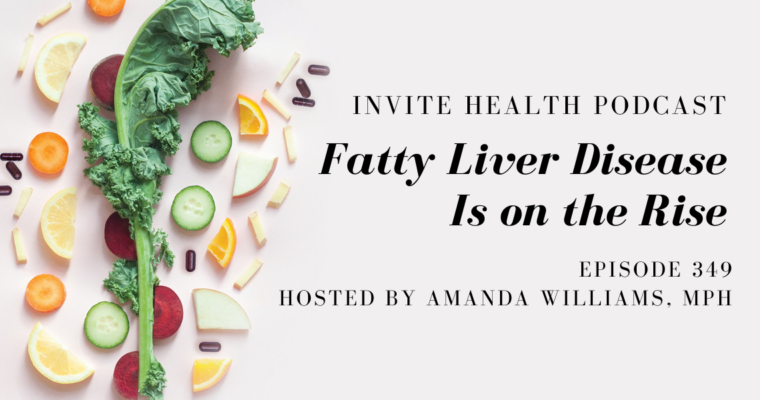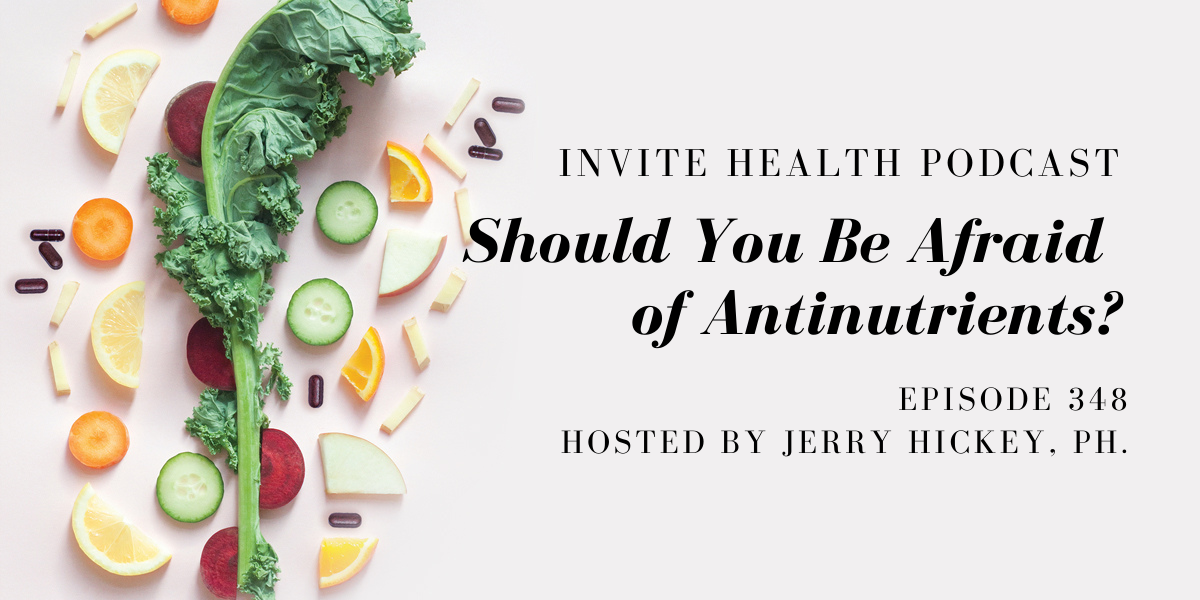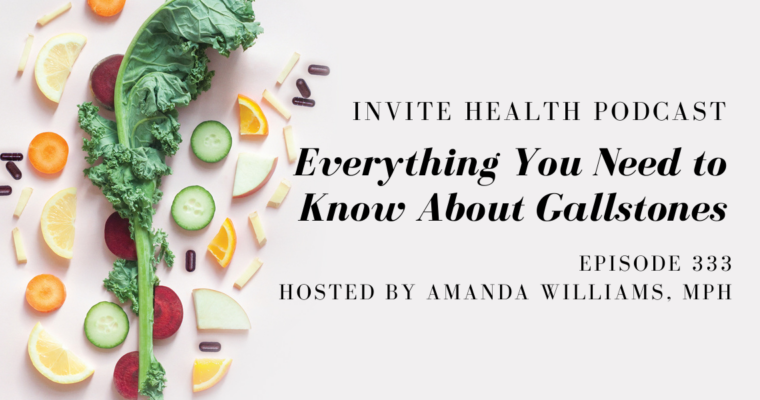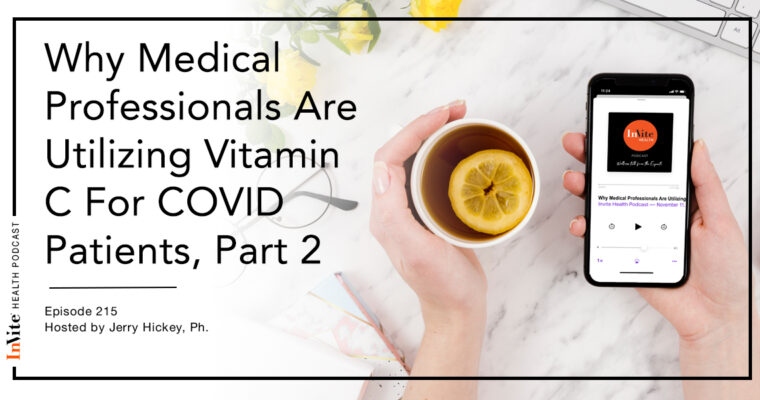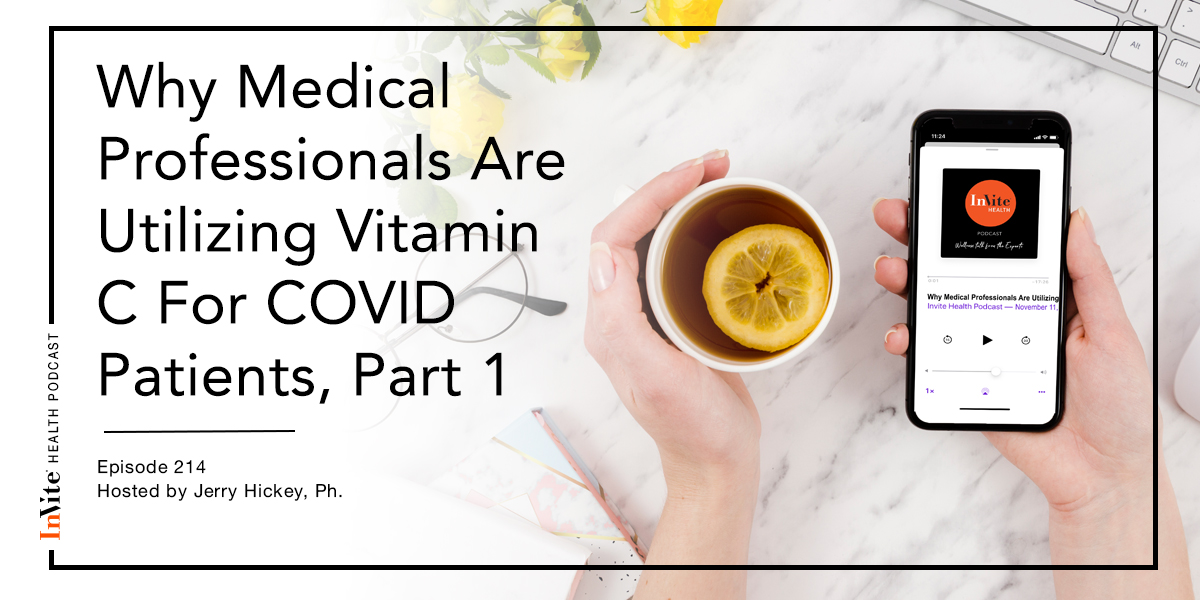vitamin c
Invite Health Podcast, Episode hosted by Jerry Hickey. Ph
Subscribe Today!
Vitamin C is very important for the proper function of your immune system. The largest hospital system in New York State is the Northwell Hospital group. It’s comprised of 23 member hospitals. A recent article in The New York Post reported on seriously sick coronavirus patients being admitted to the hospital. They were given large doses of Vitamin C by infusion. It was injected directly into their veins. Dr. Andrew Weber, a pulmonologist and critical care specialist affiliated with Northwell Health facilities on Long Island, said that his intensive care patients with the coronavirus immediately received 1500mg of Vitamin C by intravenous infusion. They gave the patients an identical amount three or four times a day until they were getting better. Dr. Weber based this regiment off experimental treatments administered to people with coronavirus in Shanghai, China.
Dr. Weber said, “The patients who received the vitamin did significantly better than those who did not get it. It helps a tremendous amount, but it’s not highlighted because it’s not a sexy drug.”
A spokesman for Northwell Health said that Vitamin C was being used widely as a coronavirus treatment throughout the system, but they noted that the medication protocols vary from patient to patient. It depended on what the clinician decided.
The Wonders of Vitamin C – InVite Health Podcast, Episode 200. Listen Now >>
Dr. Weber said that Vitamin C levels drop dramatically in patients with coronavirus when it’s causing real problems. The COVID-19 virus can trigger a severe inflammatory reaction in the body. It’s kind of like a whiplash reaction from your immune system. The immune system releases massive amounts of interleukin-6, a very powerful cytokine that can cause severe inflammation if too much of it is expressed. They call this a cytokine storm. There’s a coronavirus-specific type of pneumonia that they can pick up on in x-rays, and this triggers acute respiratory distress syndrome, where the lining of the lungs fills up with fluid and it’s hard for you to breathe. According to medical professionals, this vitamin helps to tamp down the level of interleukin 6 so you’re less likely to have that cytokine storm that’s so dangerous in the latter stages of the coronavirus infection. It also restores the release of interferons, which are mediators in the immune system that trigger the production of more immune cells to kill a virus.†
Why is Vitamin C so important to medical professionals?
This is an important update on Vitamin C and COVID-19. It is a crucial vitamin that is necessary for the correct functioning of your immune system. It has effects on the immune system that help the body to eradicate viruses. I consider Vitamin C to be an adjunctive nutrient to support the immune system, meaning that it’s an add-on to whatever the doctor’s prescribing, just like I would consider Vitamin D and Zinc to be adjunctive, and very important, therapies.
When you’re admitted to the hospital with an infection, your Vitamin C levels drop like crazy. This is because the immune system is soaking it up. They found recently that, in COVID-19 patients in intensive care units, they couldn’t even detect this vitamin in their blood plasma. Plasma is the clear fluid in your blood. That’s where they would look for Vitamin C, but when they looked at the plasma, the Vitamin C was so low that they couldn’t even detect it with their equipment.†
New Research: Nitric Oxide Beneficial During COVID-19. Learn More >>
Vitamin C is needed to get immune cells from point A to point B. For instance, the first responders are called neutrophils. They’re a type of white blood cell. If you get enough neutrophils at the site of an infection, it basically wipes it out. But the neutrophils may not necessarily be at the site where you’re developing the infection. They have to be mobilized and transported. Vitamin C is needed for that. It’s called chemotaxis. Once the neutrophil gets to the site of the infection, it has to release its arsenal of weapons to kill the virus. That’s called respiratory burst and that also requires Vitamin C. Your local immune cells soak up it up like crazy at the start of an infection to get there and to kill the virus.†
For more information about the importance of Vitamin C in your body, tune into the full podcast episode.
Vitamin C used in the intensive care unit
Here’s a study on Vitamin C and people in the intensive care unit. This is not coronavirus, these are other infections. It’s in the journal Nutrients and it was done by researchers at the University of Helsinki and the University of Sydney. They gave people in intensive care units 2000mg of Vitamin C a day, breaking it up into 1000mg twice a day. This was getting them out of the hospital a lot quicker.†
For more information on how specific nutrients can help the body fight infections, tune into the full podcast episode, and stay tuned for a second part of this episode coming tomorrow!
Thank you for tuning in to the Invite Health Podcast. You can find all of our episodes for free wherever you listen to podcasts or by visiting www.invitehealth.com/podcast. Make sure you subscribe and leave us a review! Follow us on Facebook, Twitter and Instagram at Invite Health today. We’ll see you next time on another episode of the Invite Health Podcast.



